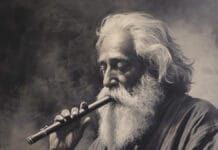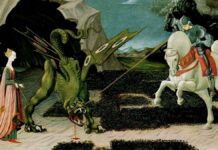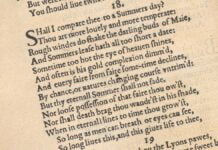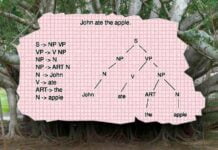Alfred, Lord Tennyson’s poem Ulysses, written in 1833 and published in 1842, captures the essence of a restless hero, Ulysses (the Roman name for the Greek Odysseus), as he reflects on his past experiences and his desire for continued adventure. It is a powerful and evocative poem that explores themes of ambition, mortality, and the restless human spirit. The poem presents Ulysses as an ageing king who finds his current domestic life dull and unfulfilling. He yearns to return to the adventurous life he once knew and laments the monotony of ruling Ithaca, longing instead for the unpredictable challenges of the sea and new discoveries.
Ulysses is one of Tennyson’s most celebrated poems, known for its exploration of human resilience, the pursuit of knowledge, and the tension between duty and personal desire. The poem reflects Tennyson’s own struggles with grief and doubt, particularly following the death of his close friend, Arthur Hallam. The themes of loss and the desire to move forward resonate throughout the poem, making it a poignant reflection on the human condition.
The poem is a dramatic monologue, where Ulysses speaks directly to the audience, conveying his dissatisfaction with his passive existence. He acknowledges that he has accomplished much in his past but feels that there is still more to achieve. His famous lines, “I cannot rest from travel; I will drink / Life to the lees”, indicate his desire to live life fully until the end. The poem contrasts the vitality and passion of youth with the weariness and stagnation of old age, though Ulysses refuses to succumb to the latter.
Summary
The poem opens with Ulysses expressing frustration with his current role as king. He declares there is little point in his staying home “by this still hearth” with his old wife, doling out rewards and punishments for the unnamed masses living in his kingdom. Ulysses describes Ithaca as a land of “barren crags” and his people as “a savage race” who lack ambition and purpose. His contempt for his responsibilities as a ruler reveals his internal conflict —he no longer finds joy in domestic duties and craves adventure.
Still speaking to himself, he proclaims that he “cannot rest from travel” but feels compelled to live to the fullest and swallow every last drop of life. He has enjoyed all his experiences as a sailor who travels the seas and considers himself a symbol for everyone who wanders and roams the earth. He recalls his travels and the challenges he faced with fondness, contrasting them with his present inactivity. His travels have exposed him to many different types of people and ways of living. They have also exposed him to the “delight of battle” while fighting the Trojan War with his men.
Ulysses believes that his true self is defined by action, exploration, and perseverance rather than by the quiet life of a king. He declares that his travels and encounters have shaped who he is: “I am a part of all that I have met,” he asserts. And it is only when he travels that the “margin” of the globe that he has not yet traversed shrinks, fades, and ceases to goad him.
Ulysses says that it is boring to stay in one place and that to remain stationary is to rust rather than to shine; to stay in one place is to pretend that all there is to life is the simple act of breathing, whereas he knows that in fact, life contains much novelty, and he longs to encounter this. His spirit yearns for new experiences that will broaden his horizons; he wishes “to follow knowledge like a sinking star” and to grow in wisdom and learning.
Ulysses now speaks to an unidentified audience concerning his son Telemachus, who will act as his successor while the great hero resumes his travels: he says, “This is my son, mine own Telemachus, to whom I leave the sceptre and the isle.” He speaks highly but patronisingly of his son’s capabilities as a ruler, praising his prudence, dedication, and devotion to the gods. Telemachus will do his work of governing the island, while Ulysses will do his work of travelling the seas: “He works his work, I mine.”
Finally, Ulysses resolves to set sail once more, despite his old age. He addresses the mariners with whom he has worked, travelled, and weathered life’s storms over many years. He declares that although he and they are old, they still have the potential to do something noble and honourable before “the long day wanes.” He encourages them to make use of their old age because “ ’tis not too late to seek a newer world.“ He declares that his goal is to sail onward “beyond the sunset“ until his death. Perhaps, he suggests, they may even reach the “Happy Isles,“ or the paradise of perpetual summer described in Greek mythology, where great heroes like the warrior Achilles were believed to have been taken after their deaths.
Although Ulysses and his mariners are not as strong as they were in their youth, they are “strong in will“ and are sustained by their resolve to push onward relentlessly. The famous closing lines, “To strive, to seek, to find, and not to yield”, encapsulate the theme of undying ambition and the refusal to accept complacency, even in the face of mortality.
Analysis
Ulysses is a masterpiece of Victorian poetry, renowned for its lyrical beauty, philosophical depth, and powerful imagery. Tennyson’s use of language is masterful, creating vivid and evocative descriptions of the sea, the sky, and the human spirit.
The poem explores timeless and profound themes such as ambition, mortality, and the restless human spirit. Ulysses’s longing for adventure and refusal to accept age and mortality’s limitations resonate with readers across generations.
Tennyson’s choice of dramatic monologue as the form for this poem is particularly effective. It allows the reader to hear Ulysses’s voice directly and understand his motivations and inner turmoil. The poem is a powerful meditation on the human condition, exploring the tension between the desire for adventure and the inevitability of death.
Themes
Restlessness and the Human Spirit
At the heart of Ulysses is the theme of the insatiable human desire for growth, experience, and knowledge. Ulysses embodies the spirit of adventure and dissatisfaction with complacency. Even in old age, he refuses to accept the idea of slowing down or settling into the role of a passive king. This can be seen as a metaphor for the human drive to seek meaning and purpose in life, regardless of age or circumstance.
The Conflict Between Personal Ambition and Duty
Ulysses is torn between his responsibilities as a king and his desire for personal fulfilment. He views ruling Ithaca as a mundane, thankless task that prevents him from realising his full potential. This conflict reflects a broader human dilemma —prioritising duty and stability or pursuing one’s passions and desires.
Mortality and Legacy
Although Ulysses is aware of his old age, he refuses to let it define him. Despite his physical limitations, his resolve to continue seeking adventure speaks to the idea of leaving a lasting legacy. For Ulysses, living fully means refusing to yield to the inevitability of death but instead pushing the boundaries of experience for as long as possible.
Heroism and the Classical Ideal
Tennyson draws on classical ideals of heroism through Ulysses’ character. Ulysses is portrayed as the quintessential hero, determined to keep striving for greatness despite the odds. His speech echoes Homeric values of courage, honour, and perseverance, though Tennyson also adds a layer of modern introspection and existential questioning to the classical figure.
Structure and Form
The poem is written in blank verse (unrhymed iambic pentameter), which lends it a formal and measured rhythm, suitable for a monologue by a dignified and contemplative character like Ulysses. The use of enjambment, where sentences flow over the ends of lines, reflects the fluidity of Ulysses’ thoughts while also conveying a sense of forward momentum. This mirrors the theme of perpetual striving, as Ulysses’ thoughts and desires are continuously in motion, refusing to settle.
Imagery and Symbolism
Tennyson employs rich imagery to highlight the contrast between Ulysses’ past and present. The “barren crags“ of Ithaca represent the stagnant, unchallenging life he now leads, while the “ringing plains of windy Troy“ evoke the excitement of past battles. The sea is a central symbol, representing the unknown, adventure, and endless possibilities. Ulysses’ desire to return to the sea suggests a longing for the vast, uncharted experiences that life still has to offer.
Tone and Language
The tone of the poem is reflective but also defiant. Ulysses acknowledges the inevitability of death and old age, but his language is infused with determination and an unwillingness to surrender. Phrases such as “to strive, to seek, to find“ convey his relentless pursuit of meaning, while the lack of a definitive conclusion to the poem mirrors Ulysses’ refusal to accept an end.
Ulysses is a masterful exploration of ambition, heroism, and the human condition. Tennyson’s use of the dramatic monologue allows readers to enter the mind of a complex character who wrestles with the pull of duty and desire. The poem’s themes of perseverance, identity, and mortality resonate deeply, making it a timeless meditation on the meaning of life and the relentless pursuit of purpose. Through Ulysses’ voice, Tennyson encapsulates the enduring human spirit that refuses to be confined by age or circumstance.





























